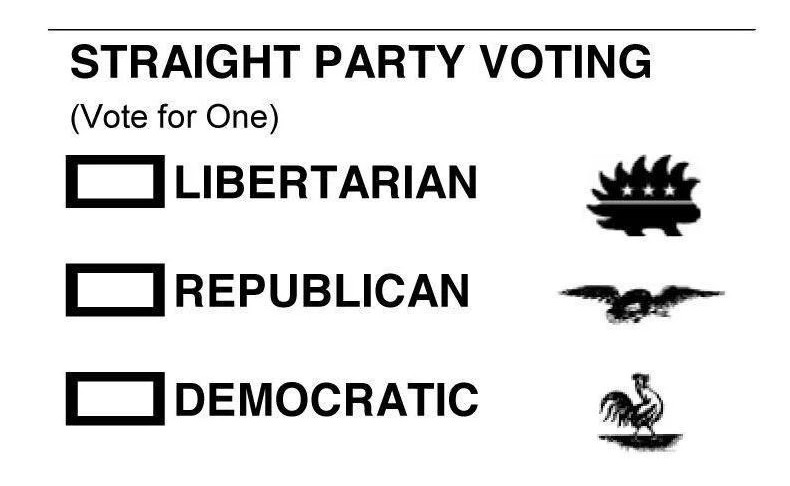Clearing the Air on the Oklahoma E-cigarette War
By Kaye Beach
Chances are you have gotten at least a whiff of the electronic cigarette controversy that has been playing out lately, not only in Oklahoma but across the nation and even worldwide. And chances are that if you have noticed any of this you have also wondered what the fuss is really all about.An e-cigarette or personal vaporizer (or "vape") is a battery-operated device that emulates smoking by heating and atomizing a carrier liquid that contains a small amount of flavoring and nicotine. The ingredients used to produce the vapor are well established to be safe for human consumption and since there is no tobacco and no combustion, there is no tar or carbon monoxide. The relative safety of using a personal vaporizer, as opposed to smoking tobacco, makes them an attractive alternative to smokers wishing to reduce or eliminate their dependence upon firing up tobacco to get their nicotine fix. The appeal of vaping is undeniable as sales of e-cigarettes have doubled every year since 2008. It is estimated that there are about four million Americans who now vape rather than smoke. I am pleased report that I am one of them.
I gave the things a go when I first encountered them a few years ago. That was back when they all looked a lot like a real cigarette. The technology has improved in every way since then and my most recent experience with the newer model was an unexpected success. I began using the vaporizer with no intention of quitting my cigarettes, but over the course of a couple of months I discovered that I simply prefer vaping to smoking. Is it any wonder so many consider the electronic cigarette to be a literal lifesaver?
There are now around 300 new vapor businesses operating in our state and it is worth noting that the rise in popularity of vaping just happens to neatly coincide with our state's recent and historic decline in smoking rates. Instead of popping the cork in celebration of longer lives and improved health, our state health agents and advocates have reacted by propagating misleading information about the products and driving bans on e-cigarettes in cash strapped cities with the promise of grant money. Ada, Shawnee and other cities have passed ordinances banning the use of electronic cigarettes on all city property -- indoors and out. In Tahlequah, a similar ordinance was beaten back, for now at least, by a number of vocal Tahlequah residents who opposed the ill-considered ban. Then on Dec. 23, 2013, Gov. Fallin said Merry Christmas to the state by issuing an executive order prohibiting e-cigarettes or vapor products on any and all state owned, leased or contracted property both indoors and out. The executive order claimed that the ban was, in part, based upon a need to protect the health of employees and visitors on state property although there is no reason to believe that vapor poses any real threat to bystanders and especially out of doors!
Just three days after Governor Fallin issued her e-cigarette edict, the New York City Council voted to add e-cigarettes and vaporizers to its strict anti-smoking ban. Former governor and presidential candidate, Mike Huckabee, publicly ridiculed the NYC Council for its "government puffery." One of the NYC Council's justifications for their ban was that e-cigarettes "look like" smoking. This is apparently beyond the pale even for the former governor who has himself been excoriated in the past over his own over-the-top political positions on eradicating smoking from public view. Huckabee must have totally overlooked the unilaterally implemented Oklahoma ban that also cited enforcement difficulties owed to the same "look alike" theory that the NYC Council used to justify its ban.
Many credible health experts have also noted a curious imbalance regarding the claims made by some public health advocates about e-cigarette health dangers. Theodor Waganer, PhD, an expert from our own state who has been conducting research for the Oklahoma Tobacco Center opines very simply that ". . .the harms have tended thus far to be overstated relative to the potential benefits." Since smoking bans have been predicated on health risks to bystanders the safety of the vapor is an important issue. Wagener, who is studying various aspects of electronic cigarettes said recently that his study of secondhand vapor turned up "nothing scary." His observations are backed up with plenty of other studies that agree that there is simply no threat to bystanders that justifies public banishment of vaping. Judging from the reaction to the sudden spate of prohibitions on vaping in our state, the public isn't buying the hype either. What most people want to know is, why are they being banned? Who is being hurt by the use of an electronic cigarette?
Financial analysts project electronic cigarettes to overtake cigarette sales by the end of the decade. This innovative technology is not a threat to public health but is a grave threat to the entire multi-billion tobacco industry as it exists today.
There are four major players in the tobacco industry. First, you have the government which is the single biggest financial beneficiary of the tobacco industry. Then, there are the tobacco companies who obviously profit from the sales of their products and also from the protection against competition provided by the government and secured by the tobacco Master Settlement Agreement. The third player is the pharmaceutical companies that have a vested interest in seeing harsh government anti-tobacco policies implemented because they profit directly from increasing sales of their "tobacco dependency" treatment products. And lastly, there are the non-governmental anti-tobacco advocacy organizations that thrive on government and pharmaceutical funding in return for their collaborative role in policy making and public opinion shaping.
Cigarette sales mean money for government both in the taxes they collect and payments from the 1998 tobacco Master Settlement Agreement (MSA). In Oklahoma, between the state and federal excise tax on cigarettes and the tobacco settlement payments, over half of the price of a pack of cigarettes goes to government coffers.
Master Settlement Agreement payments are extracted not from the tobacco companies but rather by the predominately low-income smokers that shoulder the burden of the payments through cigarette price hikes. Tobacco settlement payments depend on the volume of cigarettes sold each year meaning that fewer cigarette sales mean less money for the government. Talk about perverse incentives.
The funds that our state receives each year from Tobacco Master Settlement Agreement is invested and managed by Tobacco Settlement Endowment Trust or TSET. So far, the tobacco Master Settlement Agreement has provided $1.04 billion in payouts to Oklahoma and 75% of those funds go directly to TSET.
TSET uses the profits from its investments of MSA money to fund a range of endeavors including the Oklahoma Tobacco Helpline. According to a 2006 Tobacco Cessation Leadership Network document featuring the tobacco control accomplishments of TSET, the purpose for integrating the anti-tobacco policies (higher taxation, public prohibitions and insurance coverage for pharmaceutical cessation products) with smoking cessation service is to increase demands for these services and to create new demand for them. According to TSET, Oklahoma has systematically integrated its anti-smoking policies with tobacco cessation promotion. TSET also funds the Oklahoma Insurance Department, Oklahoma Hospital Association, Oklahoma Dept. of Mental Health and Substance Abuse, and Oklahoma Healthcare Authority.
The smoking cessation drug market has been a lucrative one for the pharmaceutical companies, but the popularity of electronic cigarettes has them worried. Already in England, electronic cigarettes have surpassed conventional cessation product sales. I could write a book on the pervasive pharmaceutical influence present throughout our state's public health system, but it's not necessary because you can see it plain enough in our state and local anti-tobacco policies. However, if you'd like to further investigate their role in Oklahoma health policy, start with the Oklahoma Turning Point Initiative and the Robert Wood Johnson Foundation. The Robert Wood Johnson Foundation is one of Johnson & Johnson's largest shareholders. Johnson & Johnson just happens to own or manufacture a variety of pharmaceutical drugs including some of the very same smoking cessation products promoted by the state through the Oklahoma Tobacco Helpline.
I find it hard to reconcile the fact that while TSET and their public health partners are incentivizing public bans and demonizing e-cigarettes they are simultaneously pushing to the public dangerous drugs like Chantix. Chantix's real world success rate is 14%. It also has some remarkably dangerous side effects associated with it. Chantix and Zyban (another drug you will find promoted through our state's tobacco "helpline") have both earned the FDA's infamous "black box" warning. Consumers are warned that these drugs can cause serious psychiatric problems, including suicidal thinking.
You'll find TSET grant funding everything from OETA to bike racks, but let's look at the "Communities of Excellence in Tobacco Control" incentive grants that are driving the vapor bans. Twenty-six Oklahoma counties are currently part of a "Communities of Excellence," making them eligible in 2014 for TSET's highest payout in the tobacco control arena. TSET raised the bar this year by making the gold standard for tobacco control excellence the city ordinances that in addition to banning all forms of tobacco, also ban e-cigarettes. But they also double the amount of these grant funds over last year. In addition, TSET set aside $4.1 million just to fund the work of the anti-tobacco coalitions that you'll find in your city agitating for the vaping bans.
The goalposts are always moving. "Smoke-free" efforts have been justified by risks posed to nonsmokers from second-hand environmental tobacco smoke. But then they upped the ante from "smoke-free" to "tobacco-free." This cannot be justified because the use of smokeless tobacco is in no way harmful to anyone other than the user.
Not all tobacco products are created equal and public policy that treats all tobacco the same is irrational, even from the perspective of a shameless social engineer if the goal is actually reducing the burden of death and disease from tobacco. Smokeless tobacco products are well-established by both scientific as well as historical data to be about 98% safer than smoking tobacco. But our state agencies won't provide that information to public and the result is that smokers keep on smoking since they are misled into believing that it is all the same anyways.
Isn't it interesting that our guardians of public health will be the first to decry "abstinence only" when it comes to sex education of children, but when it comes to adults and tobacco they become abstinence only fundamentalists whose message to smokers is essentially either quit or die.
TSET, now liberated from reason with by their "tobacco-free" policy goals are pushing the envelope even further by redefining tobacco to include e-cigarettes, a product that contains no tobacco at all and don't necessarily even contain nicotine. In fact, many vapers gradually continue to lower the levels of nicotine until it eventually reaches zero.
The Master Settlement Agreement was supposed to provide financial compensation for the taxpayer money that was spent on tobacco related health care. Instead, these funds are being utilized to protect the profits and promote the products of favored industries while advancing policies that work to suppress competition and abrogate individual and property rights.
The next public health war that TSET is gearing up to wage is on obesity and we can expect to see the same tactics utilized to fight that battle.










Latest Commentary
Saturday 31st of January 2026
Saturday 31st of January 2026
Saturday 31st of January 2026
Saturday 31st of January 2026
Saturday 31st of January 2026
Saturday 31st of January 2026
Saturday 31st of January 2026
Saturday 31st of January 2026
Saturday 31st of January 2026
Saturday 31st of January 2026
Saturday 31st of January 2026
Saturday 31st of January 2026
Saturday 31st of January 2026